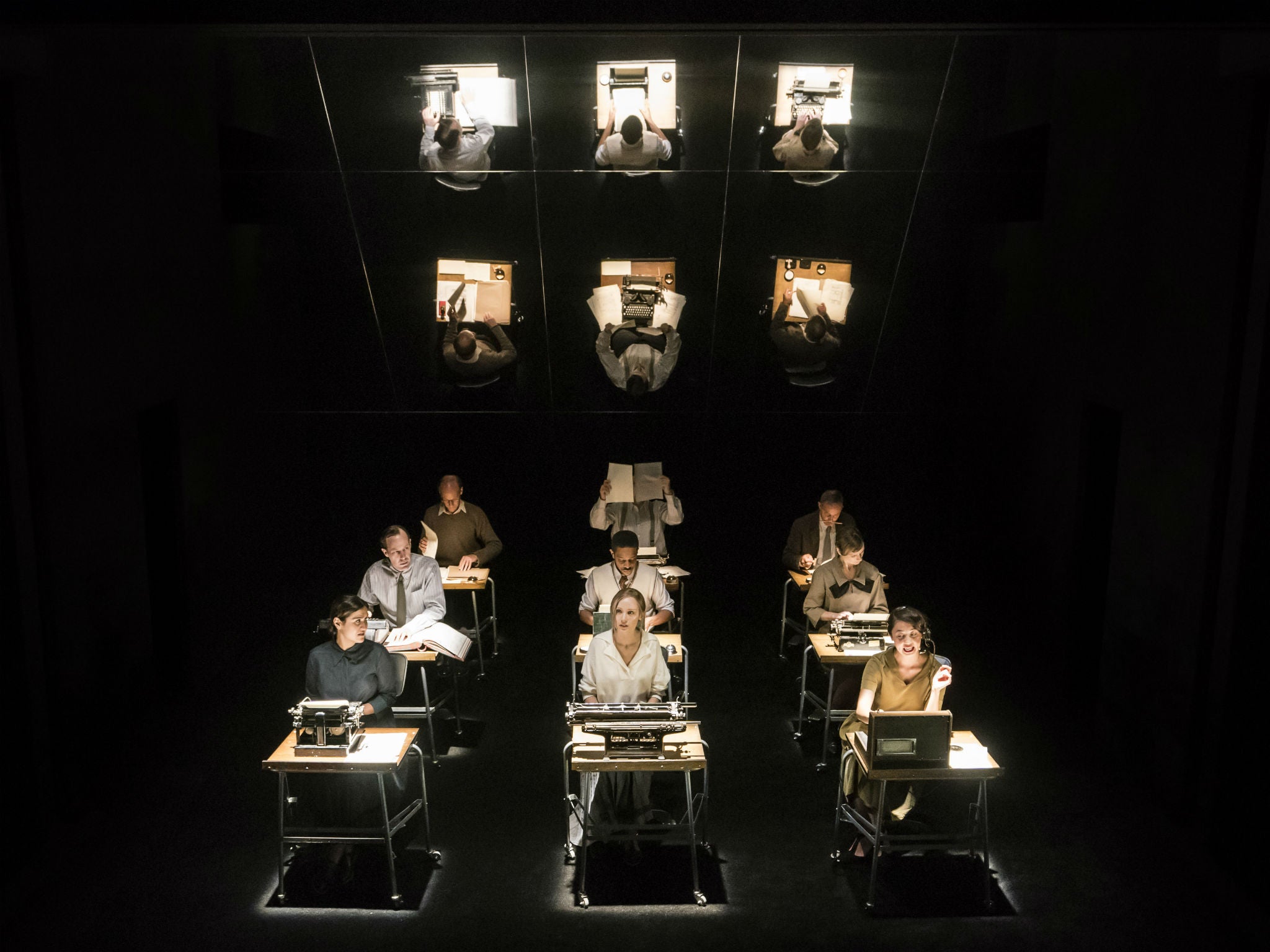Machinal, Almeida Theatre, London, review: Feels like it could have been written last week
The restlessness and desperation of a young woman forced into an unhappy marriage are superbly caught by Emily Berrington in this revival of Sophie Treadwell's expressionist classic

Your support helps us to tell the story
From reproductive rights to climate change to Big Tech, The Independent is on the ground when the story is developing. Whether it's investigating the financials of Elon Musk's pro-Trump PAC or producing our latest documentary, 'The A Word', which shines a light on the American women fighting for reproductive rights, we know how important it is to parse out the facts from the messaging.
At such a critical moment in US history, we need reporters on the ground. Your donation allows us to keep sending journalists to speak to both sides of the story.
The Independent is trusted by Americans across the entire political spectrum. And unlike many other quality news outlets, we choose not to lock Americans out of our reporting and analysis with paywalls. We believe quality journalism should be available to everyone, paid for by those who can afford it.
Your support makes all the difference.Natalie Abrahami directs an impressive, powerfully disconcerting production of Sophie Treadwell’s remarkable expressionist drama, Machinal, first performed in New York in 1928. Unfolding in nine jagged scenes or “Episodes”, it charts the descent into deepening darkness of a young woman who finds herself stifled and finally destroyed by a male-dominated, mechanistic society.
A stenographer who is a sensitive, lonely cog in the machine of big business, she’s blackmailed by a bullying, dependant mother into a joyless marriage with her boss whose touch makes her skin “curl” and whose child she reluctantly bears. Then she chances upon love and its attendant treachery and ends these urban stations of the cross in the electric chair after killing her husband.
The play was last revived in Britain 25 years ago when Stephen Daldry directed Fiona Shaw in a staging so stupendous that, to my mind, it embroiled the proceedings in an irony: Treadwell’s expressionist indictment of the dehumanising metropolis was conveyed in what looked like an awesome celebration of the vast technological resources of the Lyttelton. At the Almeida, Abrahami’s production works on a scale that manages to transmit a visceral sense of the city’s oppressiveness, while never in any danger of dwarfing the Young Woman, whose restlessness and desperation are superbly caught by Emily Berrington.
The black screens at the front of Miriam Buether’s set open and shut like jaws, tipped by two parallel lines of glaring white light. They first open to show a letterbox view of the Young Woman, fighting for breath on a crowded subway car. The flare in the final closure suggests, with a grim, terse eloquence, that even slaughter has been industrialised.
I wasn’t sure about the touches of creeping modernity in the production. The office workers are clattering on old-fashioned typewriters at the start. But by the time we get to the trial for murder, the defendant is in a trouser suit and the event is being covered by CNN. This effort at underlining the timelessness of the story isn’t wholly successful.
Why is Helen Jones (as she’s eventually named) still so hung up on antiquated ideas about divorce? “If you just wanted to be free – why didn’t you divorce [your husband]?” asks the judge. “Oh I couldn’t do that!! I couldn’t hurt him like that!” she replies. You can imagine her meaning that in 1928. But now?
In many ways, though, the play feels ahead of its time. The staccato rhythms in the dialogue, the syncopated telegraphese, the jangly cliche-ridden repetitions – “Did you swing it?” “Sure I swung it.” “Did they come through?” “Sure they came through.” – all foreshadow the work of Pinter and, more especially, Mamet.
There’s an amazing scene set in a dimly lit speakeasy – like all the the episodes redoubled in a tilted mirror, so that it’s like theatre and operating theatres combined – where the Young Woman meets her lover and we overhear a gay man picking up a student and another man browbeating his reluctant girlfriend to have an abortion. It could have been written last week.
Ben and Max Ringham rise to the occasion with a sound design that sets the nerves on edge. This “purgatory of noise” as one of the characters describes the racket of existence. Even in the maternity room, Helen’s peace is destroyed by the building work that drills into the seclusion.
It’s Berrington’s achievement to make the high-strung fastidiousness of the character – her shuddering phobia of the whole sterile, misogynist assembly line – seem, at times, almost visionary in its intensity.
To 21 July (almeida.co.uk)
Join our commenting forum
Join thought-provoking conversations, follow other Independent readers and see their replies
Comments